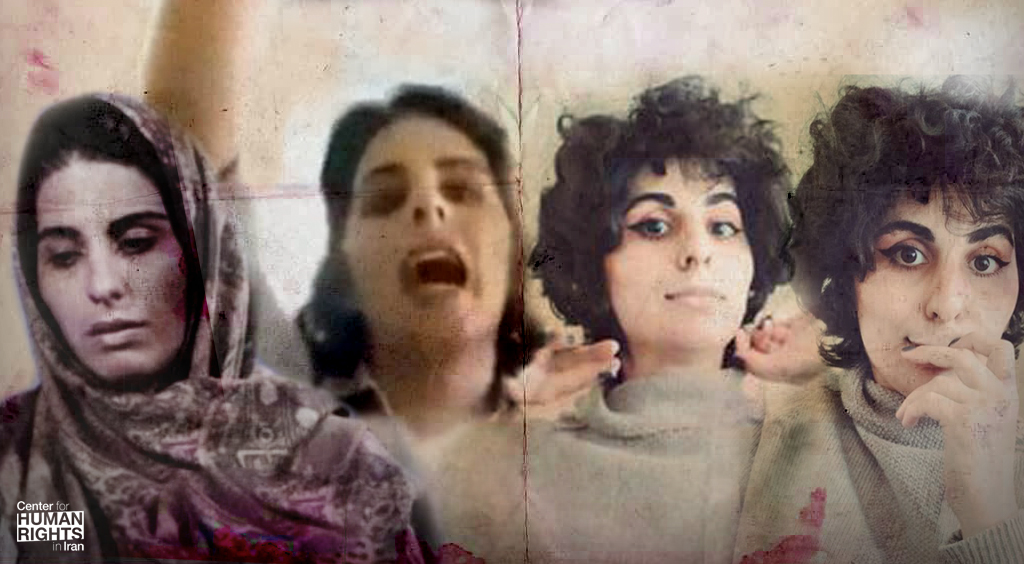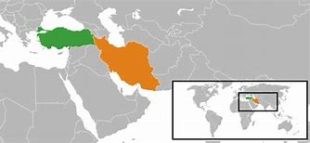CHRI – Charges filed against a woman in Iran, Sepideh Rashno, after she was accosted by another woman who accused her of failing to comply with the government’s compulsory hijab law, highlight the state’s repressive stance towards those who engage in civil disobedience, and the courage of those who strive for basic rights despite harsh adversity.

“The only ‘crime’ Sepideh Rashno committed was trying to be a woman on her own terms in Iran,” said Jasmin Ramsey, deputy director of the Center for Human Rights in Iran (CHRI).
“By refusing to comply with the state’s forced hijab law, she was refusing to be a second-class citizen,” Ramsey added.
“The Iranian judicial system under the government of President Ebrahim Raisi, a willful servant of the Islamic Republic’s male chauvinistic old guard, is now trying to make an example of Ms. Rashno,” Ramsey added.
“The message has not changed since the 1979 revolution: Anyone who defies us, especially women, will be beaten into submission,” she said.
Rashno Arrested, Beaten, Forced to Make Statements on State TV
On August 20, state media reported that Rashno had been charged with “assembly and collusion against national security through contacts with individuals abroad,” “propaganda against the Islamic Republic” and “encouraging (moral) corruption and prostitution.”
CHRI has been informed by a source with detailed knowledge of the case that she was held in solitary confinement until the moment she was taken to court to hear the charges.
She has been allowed to read the indictment against her, yet has not been allowed to keep a copy–a violation of her due process rights to prepare a full and proper defense.
The charges are based on Rashno’s alleged improper hijab, her involvement in a confrontation with the woman who accosted her, and a video that was taken of the incident and later went viral.
The 28-year-old Rashno was initially arrested on July 16, 2022, a few days after the video of her confrontation with a woman on a bus went viral online.
After being arrested, Rashno, while in state custody, was hospitalized for internal beating.
A video of the bus incident showed an unidentified person yelling at the woman, Rayeheh Rabiei, who had accosted Rashno for not wearing the mandatory hijab. An argument ensued and then, when the bus had stopped, Rabiei was pushed off the bus.
Rabiei also filmed Rashno, and screamed that she would report Rashno to the intelligence authorities.
According to article 638 of the Islamic Penal Code, women refusing to wear a hijab in public is a criminal act, punishable by flogging, imprisonment or a fine:
“Anyone in public places and roads who openly commits a harām (sinful) act, in addition to the punishment provided for the act, shall be sentenced to two months’ imprisonment or up to 74 lashes; and if they commit an act that is not punishable but violates public prudency, they shall only be sentenced to ten days to two months’ imprisonment or up to 74 lashes. Note- Women, who appear in public places and roads without wearing an Islamic hijab, shall be sentenced to ten days to two months’ imprisonment or a fine of fifty thousand to five hundred rials.”
Yet the woman who accosted and filmed Rashno committed five criminal acts according to Iranian law.
Human rights lawyer Saeid Dehghan tweeted the crimes: “1) Insults and threats; 2) assault; 3) disturbing public order; 4) harassment in a public space; 5) misrepresenting herself as law enforcement. If the judiciary had enforced its own quasi laws… the harasser, Rayeheh Rabiei, would have been in detention, not the aggrieved Sepideh Rashno.”
Rabiei has not been charged.
After a social media campaign, “Where’s Sepideh?” spread online, Rashno was unlawfully shown in a heavily edited video clip on state TV, visibly unwell, apparently reading lines from a script.
Forced “confessions” in politically motivated cases in Iran are often extracted under the threat of or actual torture and then broadcast by the state’s Islamic Republic of Iran Broadcasting (IRIB) to justify politically motivated prosecutions to the public. These productions are usually aired before the detainee has been tried.
According to lawyer and Tehran University professor Mohsen Borhani, “Based on articles 91 and 96 of the Code of Criminal Procedure, broadcasting Sepideh Rashno’s images are prohibited and IRIB executives and others who aired the program can be punished…”
Rashno continues to receive support, including by 300 activists in her home province of Loristan, who demanded her release and condemned state media for airing her forced statements.
Waning Support for Hijab
Countless women have been harassed, beaten or detained in Iran since the Iranian revolution of 1979 for allegedly defying the state’s forced hijab law, including 22-year-old university student Nazy Zandieh, who was detained in July 2022 by the security forces in Tehran for publicly protesting the forced hijab.
Judiciary Chief Gholam-Hossein Ejei, who has a documented history of human rights violations, has said that the “women’s campaign against forced hijab is aimed at promoting indecency.”
Yet despite state surveys showing waning support for the forced hijab, the government of President Raisi has been working to impose stricter forced-hijab enforcement.
A report on hijab that was based on surveys conducted by the Iranian Students Polling Association in 2006 and 2014 and released by the Rouhani administration in 2018 found that 49.2% of the Iranian population believed hijab is a personal matter and should not be made mandatory.
The report acknowledged that “demanding” hijab in a society where so many see it as a personal and optional matter “is very difficult.”
A report by Iran’s Parliamentary Research Center released in March 2018 also found waning support for the hijab among Iranian society and proposed revising Iran’s mandatory hijab law as one possible approach, but nothing has been done legislatively since then despite harsher enforcement efforts.
Still, women in Iran continue to protest the compulsory hijab despite the threat of violence and imprisonment.
Renewed Crackdown on Dissent
Rashno’s case is occurring against a backdrop of a renewed crackdown on civil society in Iran, in which leading activists, human rights lawyers, artists and religious minorities are being arbitrarily detained and held without due process.
Iran’s unelected “supreme leader,” Ayatollah Ali Khamenei, has told state security agencies and the judiciary to increase political and cultural repression to the levels seen soon after the 1979 revolution.
Executions are also on the rise in Iran—with at least 251 people killed by the state between January 1 and June 30, 2022, including juvenille offenders. Executions are typically carried out after prosecutions completely lacking due process.
“No matter what the Iranian government has done, people in Iran continue to demand their basic rights, to live their lives on their own terms,” said Ramsey.
“The charges filed against Sepideh Rashno reveal a state that quivers at the sight of women who defy it,” she added, “and a government that wrongly believes it can eliminate all those who resist it.”
Read our fact sheet on women’s rights in Iran.
 Shabtabnews In this dark night, I have lost my way – Arise from a corner, oh you the star of guidance.
Shabtabnews In this dark night, I have lost my way – Arise from a corner, oh you the star of guidance.



